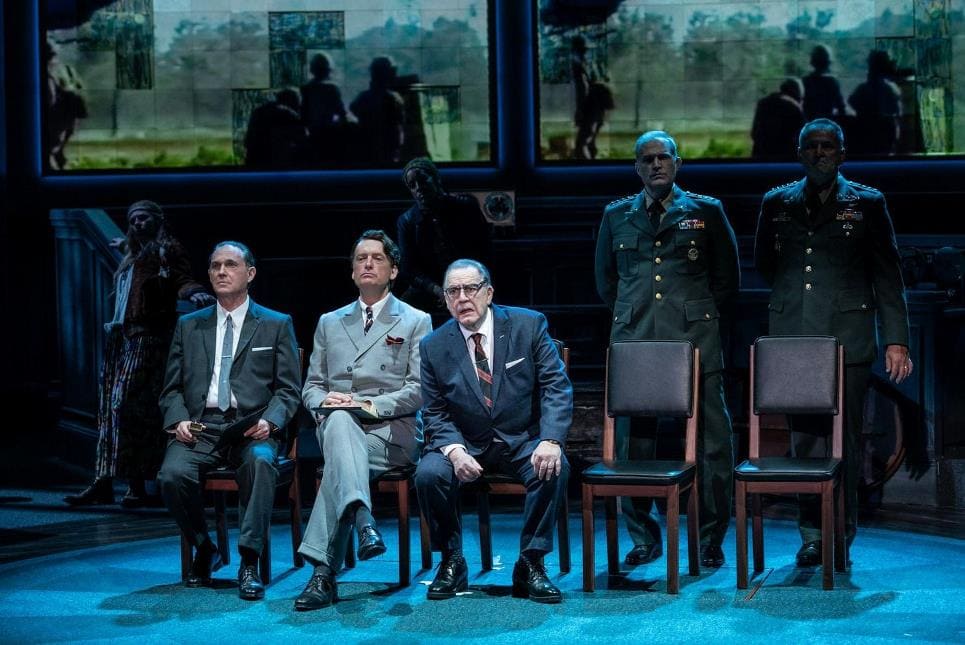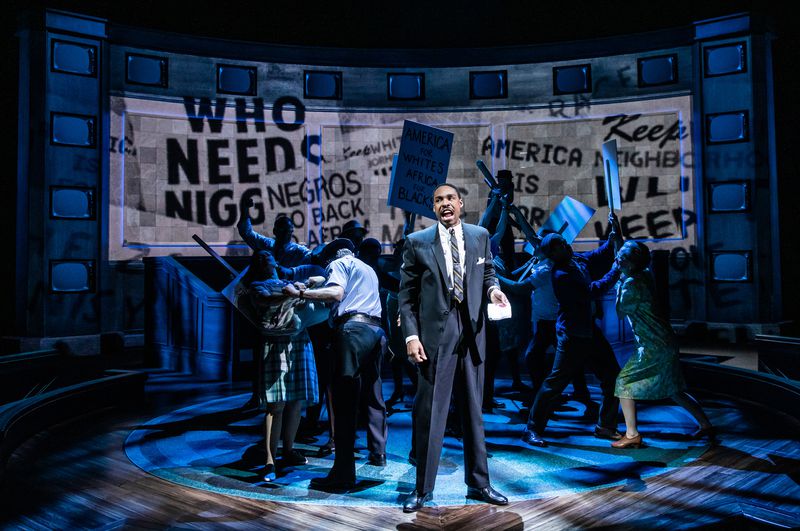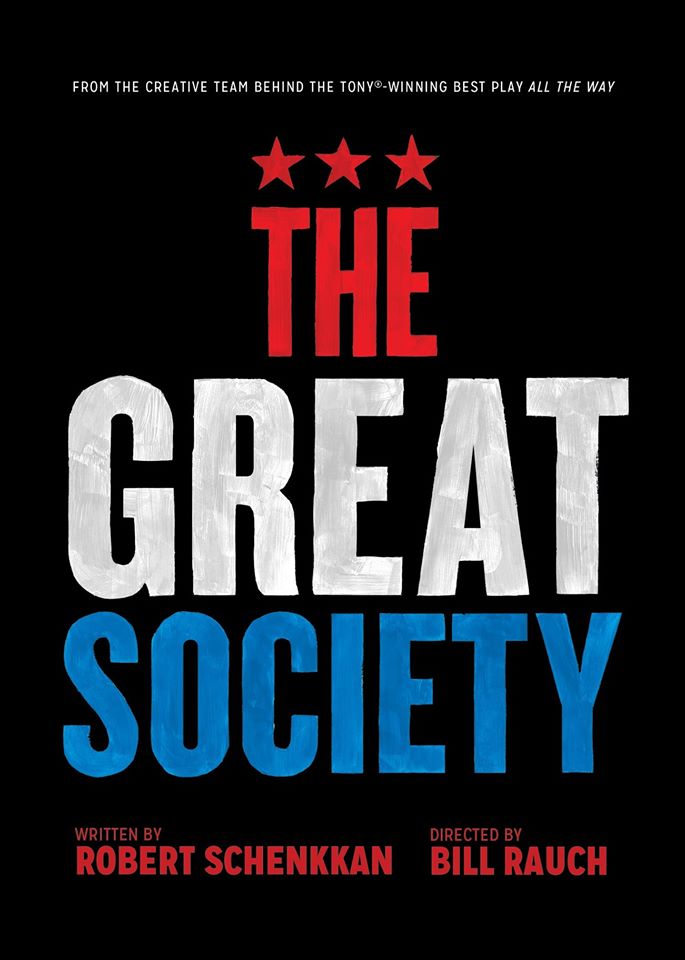With campaigning for the 2020 US election in full swing and impeachment inquiries dominating the news, the theme of presidential politics is a timely one. The Great Society – the second of playwright Robert Schenkkan’s two bio-plays on America’s 36th president Lyndon Baines Johnson (following his Tony Award-winning All the Way of 2014) – presents a jam-packed review of the momentous events and real-life characters from the time of his increasingly troubled administration in the 1960s, in an overly long history lesson that offers nothing that we didn’t already know.

At the center of it all are LBJ’s, and the country’s, embattled policies and initiatives from 1965-68, including Civil Rights, the Voting Rights Act, integration, education, and Medicare and Medicaid – all done with the titular “Great Society” in mind, but resulting in a reactionary backlash to his progressive social ideals, in-fighting among the factious leaders, and a shocking rise in police brutality – along with the escalation of the war in Vietnam and the expansion of the draft, provoking an unprecedented movement of anti-war protests. The nationwide turbulence and discord would ultimately lead to the president’s agonized decision to withdraw from seeking re-election in 1968, within a contentious field of candidates.
The narrative combines direct-address storytelling by LBJ with re-enactments of the pivotal incidents of the period and behind-the-scenes machinations of the politicos, interspersed with unnatural segments of movement, slow motion, and percussive sound-making by the ensemble, which are presumably intended to add theatrical touches to the show, but only serve to lengthen the running time and to create a strange tone of disparity with the reality of the actual historical situations. Directed by Bill Rauch, the production bombards the audience with innumerable scenes and characters (more than 50 roles played by a cast of nineteen, with a cheat sheet inserted into the program to identify many of them, for those unfamiliar with the players of the era), actors appearing in the aisles and balcony, choppy transitions, a loud delivery of the dialogue, and an overall frenetic tone. The result is an “everything-but-the-kitchen-sink” sensibility that is in need of focus and editing.
One-dimensional characterizations of the historical figures also provide little more insight than what we can glean from their public personae in the media. Brian Cox, who stars as LBJ and adopts a barely discernible Texas accent, relies largely on shouting and bellowing at his cohorts and adversaries in the political old boy network (who mostly respond in high-decibel kind), while debating and battling, lying and bamboozling, bullying and cursing to achieve his intended goals, then expressing consternation about bad publicity and his image in the press, before privately wondering aloud to his wife, “Why do they all hate me?”
And so it is with the majority of the characters, who’ve been reduced to easy stereotypes: Richard Thomas as Vice President Hubert Humphrey is smiling and ineffectual; Matthew Rauch as Secretary of Defense Robert McNamara is cunningly authoritative in his war-mongering; Bryce Pinkham as Robert F. Kennedy is a sly and opportunistic challenger; Mark Kudisch as Chicago Mayor Richard Daley is violently aggressive in the handling of his city; Ty Jones as New York Representative Adam Clayton Powell is briefly seen partying in Bimini with a cocktail and a gum-snapping bimbo; and David Garrison turns in a caricatural impersonation of incoming president Richard Nixon. The few featured women (Barbara Garrick as Lady Byrd Johnson; Angela Pierce as Pat Nixon; and Nikkole Salter as Coretta Scott King and LBJ’s assistant Sally Childress) are seen only as subordinates to the dominant men – wives, secretaries, and followers, in the years prior to the modern feminist movement.

The most developed and empathetic portrayal is that of Grantham Coleman as Martin Luther King Jr., who maintains his noble commitment to non-violent social reform, even when confronted with the violence of his opponents and the opposition of his fellow activists. Coleman convincingly captures the depth of his thoughts and emotions, and displays his dignity in the face of hatred.
An effective artistic design supports the historical narrative with period-style character-defining costumes (by Linda Cho); a set (by David Korins) that easily transitions from the meetings in Congress and the Oval Office to the action in the streets of Selma, LA, and Chicago; and projections (Victoria Sagady) of the vintage headlines, news photos, and a running count of the staggering casualties in Vietnam.
Though the time is right in this upcoming election year for an examination of the failures of the presidency, the whirlwind over-stuffed treatment given to it in The Great Society offers just a superficial recap. Maybe the best lesson we can take away from this is the recognition that those who don’t study history are doomed to repeat it.
Running Time: Approximately two hours and 40 minutes, including an intermission.
The Great Society plays through Saturday, November 30, 2019, at the Vivian Beaumont Theater at Lincoln Center – 150 West 65th Street, NYC. For tickets, call (212) 239-6200, or purchase them online.





